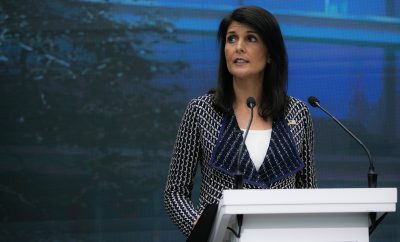 Image courtesy of Soumyadeep Paul; License: (CC BY 2.0)
Image courtesy of Soumyadeep Paul; License: (CC BY 2.0)
World
The World Health Organization Deems Single People Disabled, For a Good Cause
The World Health Organization, one of the world’s leading voices on health policy, is making an interesting change. WHO is set to announce that “single” people who don’t have a child but want one are to be classified as “infertile”–which is defined as a disability. And that may sound strange, but it’s actually coming from a place of progressive good. By doing so, WHO is granting everyone the “right to reproduce” and this move will help heterosexual single men and women, as well as same-sex couples, get equal access to in vitro fertilization.
Dr David Adamson, one of the authors of the new standards, explained the motivation behind the language and policy change to the Telegraph, saying:
The definition of infertility is now written in such a way that it includes the rights of all individuals to have a family, and that includes single men, single women, gay men, gay women.
It puts a stake in the ground and says an individual’s got a right to reproduce whether or not they have a partner. It’s a big change.
It fundamentally alters who should be included in this group and who should have access to healthcare. It sets an international legal standard. Countries are bound by it.
The rule will be sent out to every health minister next year–although it’s unclear at this point how it could actually substantively affect law or policy from country to country.
However, there are plenty of people who disagree with the new standards. One concern stems from pro-life activists, who worry that it’s an overreach. Josephine Quintavalle, from Comment on Reproductive Ethics, said:
This absurd nonsense is not simply re-defining infertility but completely sidelining the biological process and significance of natural intercourse between a man and a woman. How long before babies are created and grown on request completely in the lab?
There are also concerns from some doctors who work with in vitro fertilization that it’s creating a political matter out of a personal decision made by couples.
Concerns aside, it’s an interesting approach in the name of equality. And we don’t know how it will actually pan out, the rule will be sent out to every health minister next year–it’s unclear at this point how it could actually substantively affect law or policy from country to country. As for the U.S., a Department of Health spokesperson told the Telegraph that it would consider the change for the U.S., but nothing was guaranteed.








Comments